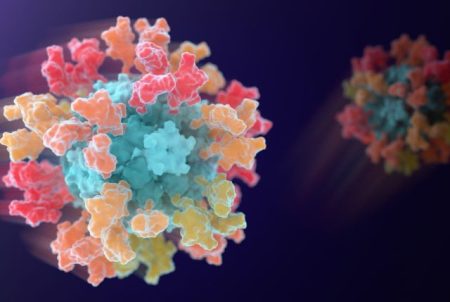Human Composting: A Natural Return to Earth
In the industrial landscape of Seattle’s SoDo district, a unique building stands out with its vibrant mural and lush garden. This is the home of Recompose, a pioneering company transforming how we approach death care. The verdant entrance offers a fitting introduction to a business centered on returning human remains to nature through composting. “You don’t have to wonder what it’s about,” explains founder and CEO Katrina Spade. “It’s about nature and returning to it.”
What began five years ago when Washington became the first state to legalize human composting has blossomed into a movement spanning 14 states. Formally known as natural organic reduction, this innovative approach offers an environmentally conscious alternative to traditional burial and cremation. The company has raised $22.5 million to date, with approximately $3 million in a current funding round earmarked for expansion beyond Seattle. Recompose is considering a franchising model to grow its presence nationally and internationally, bringing this natural approach to death care to more communities seeking sustainable options.
Stepping inside Recompose’s 20,000-square-foot facility feels more like entering a thoughtfully designed tech startup than a funeral home. The welcoming reception area features live-edge wood, preserved greenery displays, and abundant plant life throughout. Free stickers proclaiming “Compost me when I die” speak to the company’s transparent approach to its mission. The facility includes intimate spaces for families to gather with their loved ones and larger rooms for memorial services. Central to these ceremonies is the “threshold vessel,” symbolizing the passage of a person from one form to another. “Design and communication through design has really been a leading tenet of what we’ve done here,” Spade notes, emphasizing how intentional aesthetics help normalize this approach to death.
The natural organic reduction process itself is remarkably straightforward, transforming human remains over approximately 30 days. The body is placed in a tubular vessel with organic materials including straw, wood chips, and alfalfa. This carefully calibrated blend provides the ideal carbon-nitrogen balance for decomposition. The process unfolds in three distinct phases: the vessel stage, where natural breakdown generates heat (reaching the legally required 131 degrees Fahrenheit for three consecutive days to eliminate pathogens); screening, where non-organic materials like surgical implants are removed and recycled; and curing, where the soil continues to develop. The end result is about a cubic yard of nutrient-rich soil—enough to fill a pickup truck bed—which families can use in gardens or donate to Recompose’s Land Program. The company has served over 600 individuals since opening, with approximately 20% coming from out of state, and shows consistent quarterly and yearly growth.
Beyond its environmental benefits, Recompose offers deeply personalized experiences for families. The $7,000 service attracts nature lovers, environmentalists, and gardeners who find meaning in this return to the earth. In one particularly touching ceremony, friends and family added freshly harvested red peppers and purple onions to the vessel of an avid gardener, incorporating elements of their passion into their final journey. The company’s “Precompose” program, allowing people to pay into a funeral trust in advance, has over 2,000 participants ranging from their twenties to their nineties. “Young folks are inspired by the idea and want to take a tangible action toward a better, healthier planet,” Spade observes, highlighting how this approach resonates across generations.
With a team of 17 employees, Recompose operates under the oversight of three regulatory agencies: the Department of Licensing’s Funeral Board, the Washington State Board of Health, and the Puget Sound Clean Air Agency. This comprehensive regulation ensures safety, dignity, and environmental responsibility throughout the process. Spade takes pride in these standards, noting that “some of the other states are making it too complicated for operators to work.” After four and a half years of operation, the company has refined its processes to create consistent, meaningful experiences for families while honoring the natural pace of decomposition. As Spade reflects, “Death care is such emotion-heavy work. We like to remind the team composting takes time. It’s a very natural process when we receive a person’s body here, there’s just no rush to get something done quickly—which is nice.” In this unhurried return to the earth, Recompose offers not just an environmentally sustainable alternative, but a profoundly human approach to our final transition.














